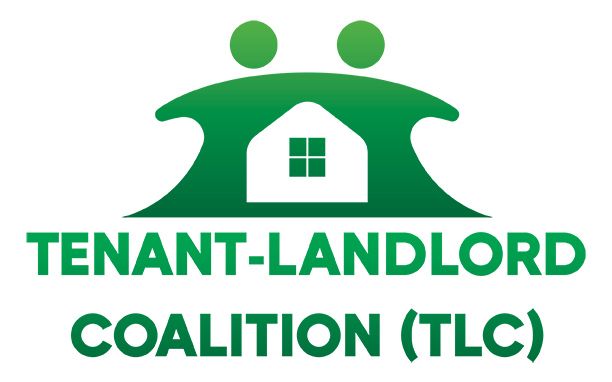
Rental Registries and Rent Control - Facts and Failures
Background:
Rental registries have been utilized in many municipalities in California, and the US. A citywide rental registry is the first step in a four-step process towards implementing increased regulation of a local rental market. Collected data is used to levy fees and fines from property owners, set caps on rent increases, and to even fine property owners for having vacant properties.
The city council of Monterey enacted a rental registry, representing it as a solution to affordability and quantity. However, no claims or promises have been made that the ordinance will lead to lower rents, or increase availability of rental units. As of May 2024, there has been hesitancy on the part of property owners to register their rental properties. Many that have registered have filed for exemptions from the fee, which they are entitled to do if they have less than four rentals
Even after hearing much opposition to the proposed ordinance during public meetings from property owners, managers and renters alike, the city council forged ahead with drafts, revisions and approval votes for the ordinance. It went into effect on January 1, 2024.
The council did not heed the warnings from the public about the negative unintended consequences that the ordinance would have on both renters and property owners.
The City of Salinas also enacted a rental registry, and is currently laying plans for "rent stabilization", in spite of having very low compliance for registration.
It is noteworthy that, in both Salinas and Monterey, property owners have been very hesitant to comply in registering their properties. In fact, there are property owners who are selling their properties, or occupying their rentals, removing them from the rental market.
Summary:
In short, rental registries lead to rent control, which leads to increased rents, lower quality units, and a more limited supply of available rentals. Ultimately, neither the renters, nor the owners benefit from government intervention in the rental market. It is sufficiently self-regulated by the mutually beneficial relationships that exists between renters and owners, as well as existing codes that protect renters.
‘Rent stabilization’
A negative effect on affordable housing.
It limits new supply and prohibits owners from maintaining and updating
quality affordable housing.
The unintended consequences of rent control:
“With rent control in effect, housing providers say they are faced with the difficult financial strain of absorbing essential maintenance costs and are forced to reduce investments in improvements and nonessential maintenance. As a result, 54% said they expect to or would consider selling some assets. This is particularly alarming for the apartment industry, as the nation faces housing supply challenges and must build 4.3 million new apartments by 2035 to meet current shortages and address future demand.”
~Forbes: The Pros And Cons Of Rent Control For Landlords And Tenants
Brenda Richardson March 23, 2023
City of Monterey Rental Registry
Verbatim from the ordinance: Article 2, Sub-section 8-2.00, B. titled “Purpose”:
“The registration process will allow the City to collect, monitor and analyze the characteristics of the rental units and actual rents in Monterey. This data will be available to the City Council to inform future policy decisions about the regulation of the rental market in Monterey.”
Apr 8, 2022, 6:04 AM | Updated: 1:02 pm
BY KIRO NEWSRADIO NEWSDESK -- MYNorthwest
Seattle has lost nearly 3,000 rental properties between May of last year and January of 2022. Those properties constitute roughly 10,000 units in total. Since May, only 27 rental units were added.
Jim Henderson with the Rental Housing Association of Washington attributes the loss to a growing number of rental protection laws, making it harder and more expensive to own rental property in Seattle.
Henderson says instead of improving conditions for renters, all the laws are limiting options and raising rental prices.
The Seattle Department of Construction and Inspections (SDCI) tells KIRO Newsradio the number of rentals has declined, but the office says it would need to do more analysis to identify a reason.
“At this time we can’t confirm these exact numbers or their magnitude, but they appear to be directionally correct with regard to a decline in rental properties. Calculation of these numbers is complicated and multi-faceted, and we can’t draw conclusions on why the numbers are changing without more a complete analysis of changes in the rental housing supply,” Christina Postlewait, relations manager with SDCI, wrote in a statement to KIRO Newsradio.
https://mynorthwest.com/3427627/seattle-loses-nearly-3000-rental-properties-in-less-than-a-year/
(Seattle’s Rental Property Registration database; compiled by Rental Housing Association of Washington)
In recent years, the Seattle City Council has passed tougher eviction laws, required landlords to pay to register properties, increased inspections, and created new laws about rent increases and rejecting tenants.
‘We’re so far behind on this’: Seattle council looks to catch up on affordable housing data
It’s difficult for landlords to comply, can be expensive and mistakes open them up to lawsuits, according to Henderson.
Henderson says many Seattle landlords are getting out of the business or investing in rentals outside the city.
Seattle loses nearly 3,000 rental properties in less than a year
San Francisco: Rent Control Data
Significant data has been gathered and examined since San Francisco passed its rent control ordinance in 1979.
One of the key findings has been that, while some pre-existing tenants did avoid displacement for a time, in the long run rents overall rose higher on all renters. It was effectively one generation of tenants' costs partially dumped onto future generations of tenants. (Diamond, et al., 2019)
Further key findings were the unintended consequences of law that incentivised rental turnover and exiting the rental business altogether. Tenants of rent controlled housing were 240% more likely to be evicted each year (Gardner, 2022). Tenant mobility was reduced by 20%, and supply of rent controlled housing shrunk 15% (Diamond, et al., 2019).
How this relates to Monterey County
Tenant mobility in Monterey County is already severely limited due to vacancy rates generally staying under 3% in the three largest cities. A similar 15% decrease in rental inventory would mean losing approximately 1,216 units in Monterey, displacing about 2,590 people, or approximately 3,934 units in Salinas, displacing about 13,768 people (calculations based on 2020 US Census housing data).
Study from:
Diamond, Rebecca, Tim McQuade, and Franklin Qian. (2019). The Effects of Rent Control Expansion on Tenants, Landlords, and Inequality: Evidence from San Francisco. American Economic Review, 109 (9): 3365-94.
https://doi.org/10.1257/aer.20181289
Gardner, M. (2022). The Effect of Rent Control Status on Eviction Filing Rates: Causal Evidence From San Francisco. Housing Policy Debate, 1–24.
What Happened In Argentina? Read THIS!


